 Petzlover
Petzlover Combai is originated from India but Tenterfield Terrier is originated from Australia. Combai may grow 33 cm / 13 inches higher than Tenterfield Terrier. Both Combai and Tenterfield Terrier are having almost same weight. Both Combai and Tenterfield Terrier has almost same life span. Both Combai and Tenterfield Terrier has almost same litter size. Both Combai and Tenterfield Terrier requires Low Maintenance.
Combai is originated from India but Tenterfield Terrier is originated from Australia. Combai may grow 33 cm / 13 inches higher than Tenterfield Terrier. Both Combai and Tenterfield Terrier are having almost same weight. Both Combai and Tenterfield Terrier has almost same life span. Both Combai and Tenterfield Terrier has almost same litter size. Both Combai and Tenterfield Terrier requires Low Maintenance.
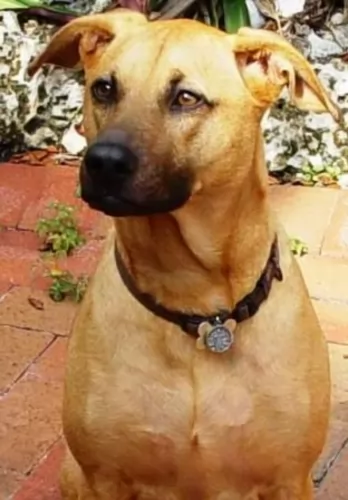 The Combai is a dog from Tamilnadu, Southern India, developed to hunt dangerous animals by the Indian royalty. It is a rare breed in India, believed to be close to extinction.
The Combai is a dog from Tamilnadu, Southern India, developed to hunt dangerous animals by the Indian royalty. It is a rare breed in India, believed to be close to extinction.
The dog is also known as the Indian Bear Hound, Indian Bear Dog and Tamil Bear Hound. You can spell the name of the dog with a ‘C’ or a ‘K’, Combai or Kombai.
Accurate records as to the history of this dog haven’t been kept, so much of the dog’s history is on speculation, although it is believed with some certainty, that the breed has been around since the 15th century. It is thought that the Combai was developed from Mastiff-type dogs, Pariah dogs, the Thai Ridgeback and Khoisan dogs.
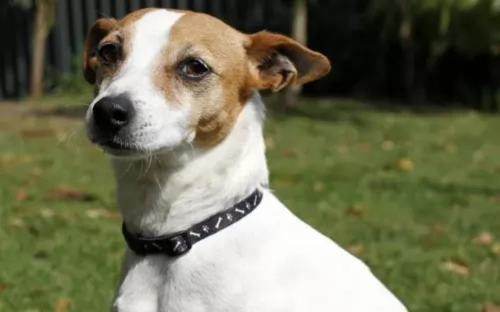 The ancestors of the Tenterfield Terrier came to Australia with the British and from them came this Australian breed. The English terriers were bred to be ratters on the ships to Australia. Today’s breed is a hardy, strong, athletic and agile dog. These first dogs were miniature Fox Terriers, bred for ratting. The miniature Fox Terrier was an established breed in the late 19th century in Australia with families and was know as a Mini Foxie. The breed became a steady presence in homes by the 1920’s.
The ancestors of the Tenterfield Terrier came to Australia with the British and from them came this Australian breed. The English terriers were bred to be ratters on the ships to Australia. Today’s breed is a hardy, strong, athletic and agile dog. These first dogs were miniature Fox Terriers, bred for ratting. The miniature Fox Terrier was an established breed in the late 19th century in Australia with families and was know as a Mini Foxie. The breed became a steady presence in homes by the 1920’s.
The breed might not have been named after the area of Tenterfield as many have guessed. Instead they may have been named after a breeder. The owner of the Tenterfield saddlery was called Tenterfield Saddler and he owned several of the breed. In 1990, Don Burke, a television personality suggested the breed be named the Tenterfield Terrier.
The Miniature Fox Terrier Club of South Australia. Now there were several clubs in Australia and a lot of disagreement about exactly what type of dog a miniature fox terrier was. Some did not think the name was legitimate, but they wanted recognition from the Australian National Kennel Club (ANKC). So, they became the Tenterfield Terrier Club of Australia in 1993. They were recognized by 2002.
Today the breed standard for the Tenterfield Terrier is different from the one for the Miniature Fox Terrier. They are now entirely separate breeds. In addition to the ANKC, the breed is recognized by the New Zealand Kennel Club but not by the AKC. It is also recognized by the American Pet Registry, Inc, the American Canine Registry and the Dog Registry of America, Inc.
 The Combai is a medium sized dog, standing at between 43 to 64cm in height and weighing up to 34kg. Possibly the most distinctive feature of the Combai is a ridge of fur that runs down its back, with the hair growing in the opposite direction to the dog’s body hair. The coat of the dog is short and smooth with colors being brown, tan or reddish. The dog is medium sized, though size does vary quite a bit . The dog is muscular, lean and athletic with a long tail that curls over the back.
The Combai is a medium sized dog, standing at between 43 to 64cm in height and weighing up to 34kg. Possibly the most distinctive feature of the Combai is a ridge of fur that runs down its back, with the hair growing in the opposite direction to the dog’s body hair. The coat of the dog is short and smooth with colors being brown, tan or reddish. The dog is medium sized, though size does vary quite a bit . The dog is muscular, lean and athletic with a long tail that curls over the back.
The head of the Combai is fairly narrow with a muzzle which is quite long.The ears of the Combai vary as well and usually drop down or they fold backwards.
The Combai’s temperament is by no means gentle and it is believed to be a fierce, angry breed who will fight other dogs to the death.
It is sometimes hard to believe that the Combai, with training and socialization can make a good family pet. He then loves the company of his human family and remains loyal to them. When trained and socialized they also get on well with children in the home.
It isn’t recommended as a first dog choice for those who have never owned a dog as it does tend to be aggressive. The dog is also very territorial and alert and its why he makes a good watchdog.
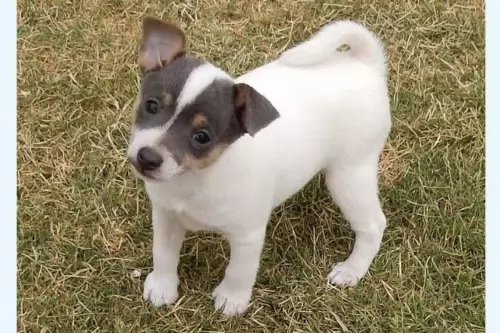 The Tenterfield Terrier is square and compact. He has a head shaped like a wedge and unusual in the terrier group. They have pricked ears and are predominantly white mixed with tan or black. They could also be tri-colored in black/tan and white or tan/liver and white. They have naturally occurring bob tails or docked tails. The nose is usually black unless the dog is liver colored, they have liver noses. The jaws are strong, and lips are tight with a strong neck.
The Tenterfield Terrier is square and compact. He has a head shaped like a wedge and unusual in the terrier group. They have pricked ears and are predominantly white mixed with tan or black. They could also be tri-colored in black/tan and white or tan/liver and white. They have naturally occurring bob tails or docked tails. The nose is usually black unless the dog is liver colored, they have liver noses. The jaws are strong, and lips are tight with a strong neck.
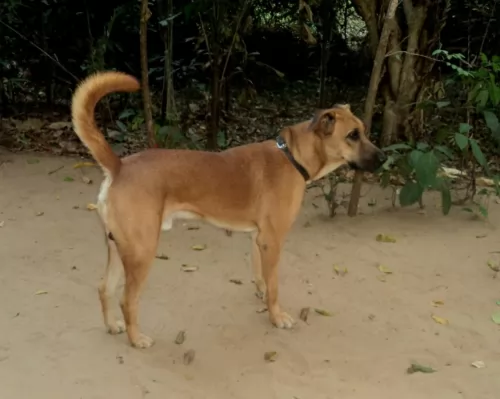 The Combai is known for its bravery and fearlessness and this is what makes him such an exceptional watch dog as he also doesn’t take kindly to strangers.
The Combai is known for its bravery and fearlessness and this is what makes him such an exceptional watch dog as he also doesn’t take kindly to strangers.
The Combai is full of energy too and won’t like to spend days lying around. He will require regular exercise.
Have him trained and socialized and he becomes the most loyal and devoted pet and companion.
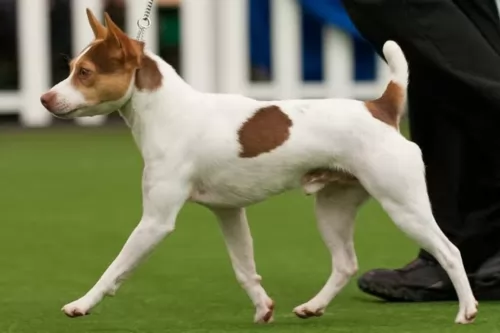 3.Adaptability – they need space even though they are small. They need a lot of exercise. They can adapt if they get another exercise. They can live in apartments and can play indoors as well as out.
3.Adaptability – they need space even though they are small. They need a lot of exercise. They can adapt if they get another exercise. They can live in apartments and can play indoors as well as out.
4.Learning ability – They are extremely intelligent, but they can be stubborn like all terriers.
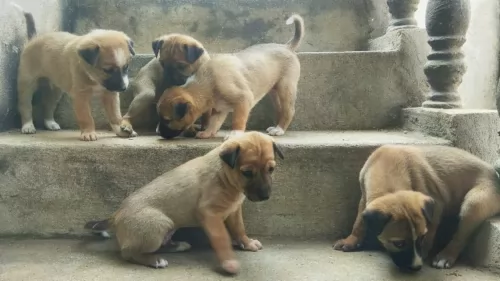 Most dog experts will agree that the Combai is a breed that enjoys excellent health, and that in fact it seems as though the dog is disease- and parasite resistant.
Most dog experts will agree that the Combai is a breed that enjoys excellent health, and that in fact it seems as though the dog is disease- and parasite resistant.
There are however, always common dog illnesses that every dog owner should be aware of and it is always to a dog owner’s benefit to have their pet tested by Foundations such as the Orthopedic- and Canine Eye Registration Foundation who can perform tests to identify potential health defects before they show up.
Some of the ailments of concern in hounds include progressive retinal atrophy, demoid sinus and hip dysplasia.
The Retina is the light sensitive part of the eye and also part of the central nervous system. In retinal degeneration, the cells of the retina decline in function and this is what leads to possible blindness.
Progressive retinal atrophy worsens with time. If your pet doesn’t seem to react to light properly it may be wise to have him checked by the vet.
This defect is found in newborns as well as later on in life, and found primarily in Ridgeback dogs. Dermoid sinus is a neural tube defect that is typically found along your dog’s back, the tail and the neck.
The role of the tubes is to drain out dead cells for example. Not correctly formed, they become infected and an abscess forms with discharge. You will have to get your pet to the vet who will proceed with treatment as your pet can experience pain and discomfort.
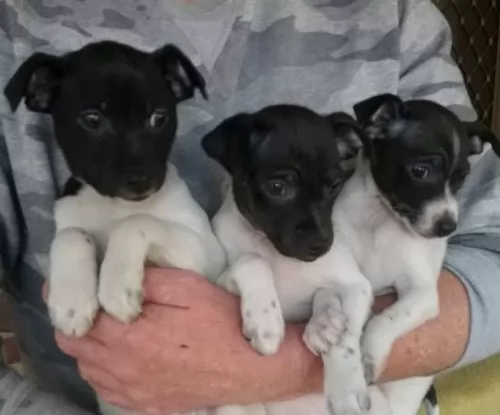 They are small in stature and because of their face they seem to have dental issues. The breed does not have a lot of health issues but deals with the same issues as many small terriers. Not all members of the breed are susceptible to these, but some are just like the Australian Terrier.
They are small in stature and because of their face they seem to have dental issues. The breed does not have a lot of health issues but deals with the same issues as many small terriers. Not all members of the breed are susceptible to these, but some are just like the Australian Terrier.
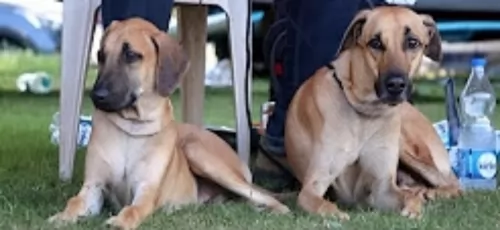 The Combai is an active dog and he will require quite a bit of exercise. A good way of giving him exercise is to take him on walks or allow him to go jogging with you or cycling.
The Combai is an active dog and he will require quite a bit of exercise. A good way of giving him exercise is to take him on walks or allow him to go jogging with you or cycling.
Denying him exercise will make him frustrated and destructive. His high exercise needs mean that he won’t do well in small apartments but will do well in the suburbs or in the country.
With his short coat, the Combai is a low maintenance breed. This breed should never require professional grooming, only an occasional brushing. Other than that, he will require his nails being clipped, his ears checked for infection and his teeth cleaned 2 or 3 times a week.
High energy dogs like the Combai will require a top quality kibble diet recommended by your vet with raw meat included in his diet from time to time as well as nutritious cooked food added in such as brown rice, vegetables and cooked chicken. Fresh water must be available to him night and day non-stop.
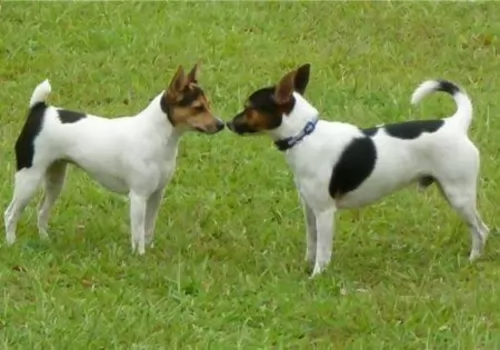 1.Feeding the puppy – Don’t overfeed but do feed high quality puppy food for small breeds and terriers.
1.Feeding the puppy – Don’t overfeed but do feed high quality puppy food for small breeds and terriers.
2.Feeding the adult – This is an active breed but don’t overfeed. Feed a high quality adult dog food for terriers or small breeds. Feed 2 times a day.
4. Games and Exercises – The breed has a high energy level and needs a lot of exercise. He is a terrier and loves to “go to ground”. Play activities that allow him to do that are best. He plays barn hunt, lure coursing and terrier specific competitions.